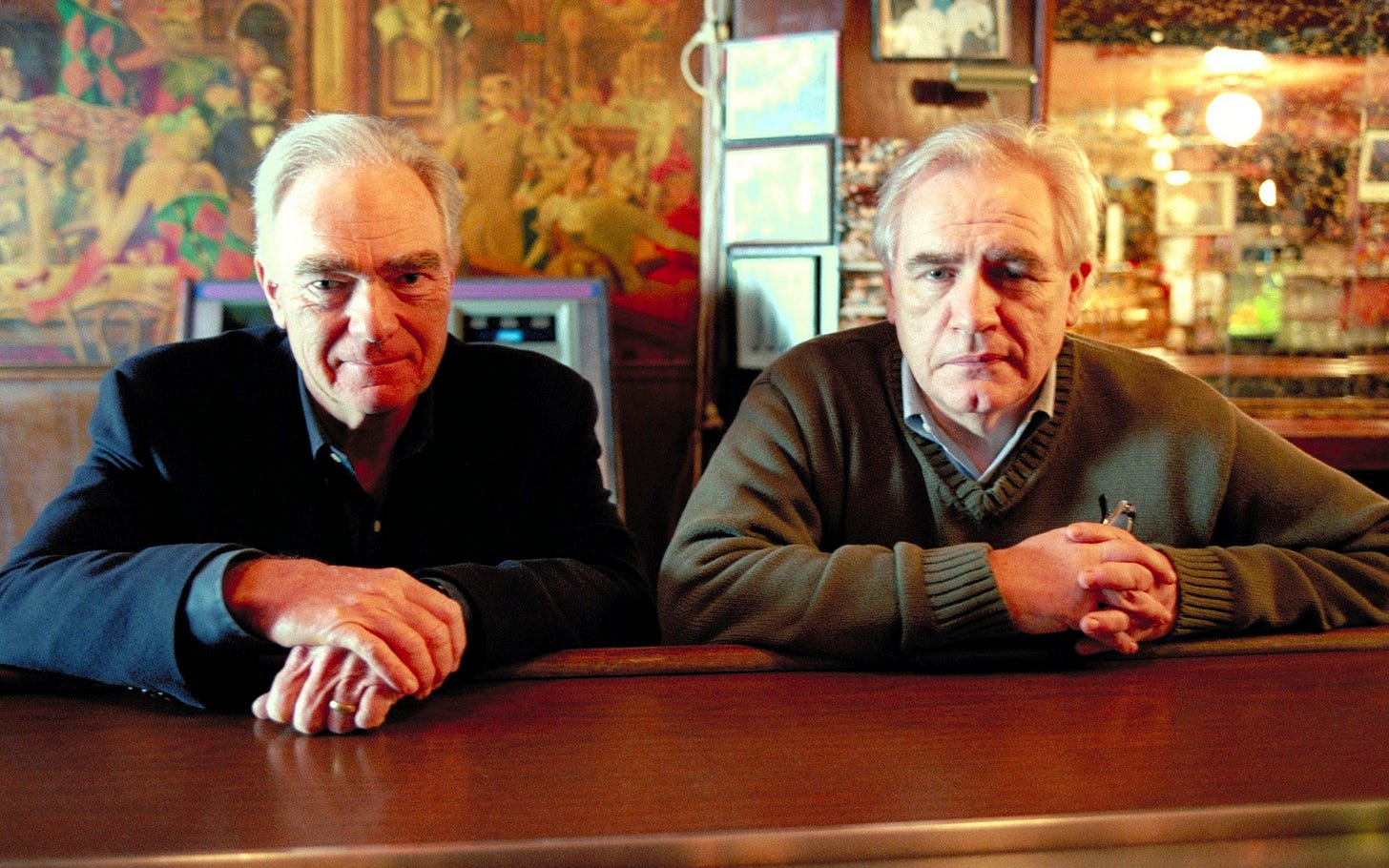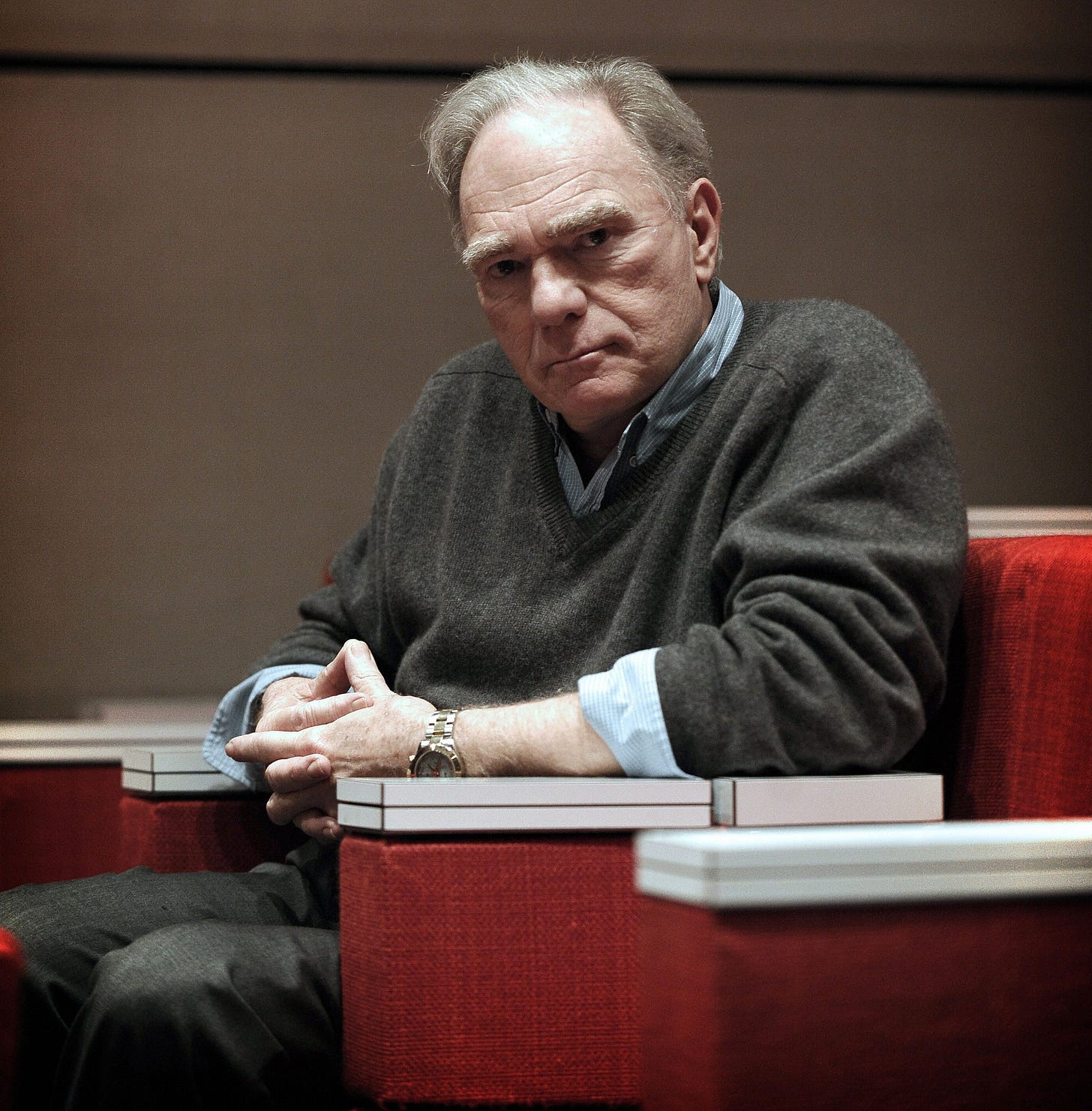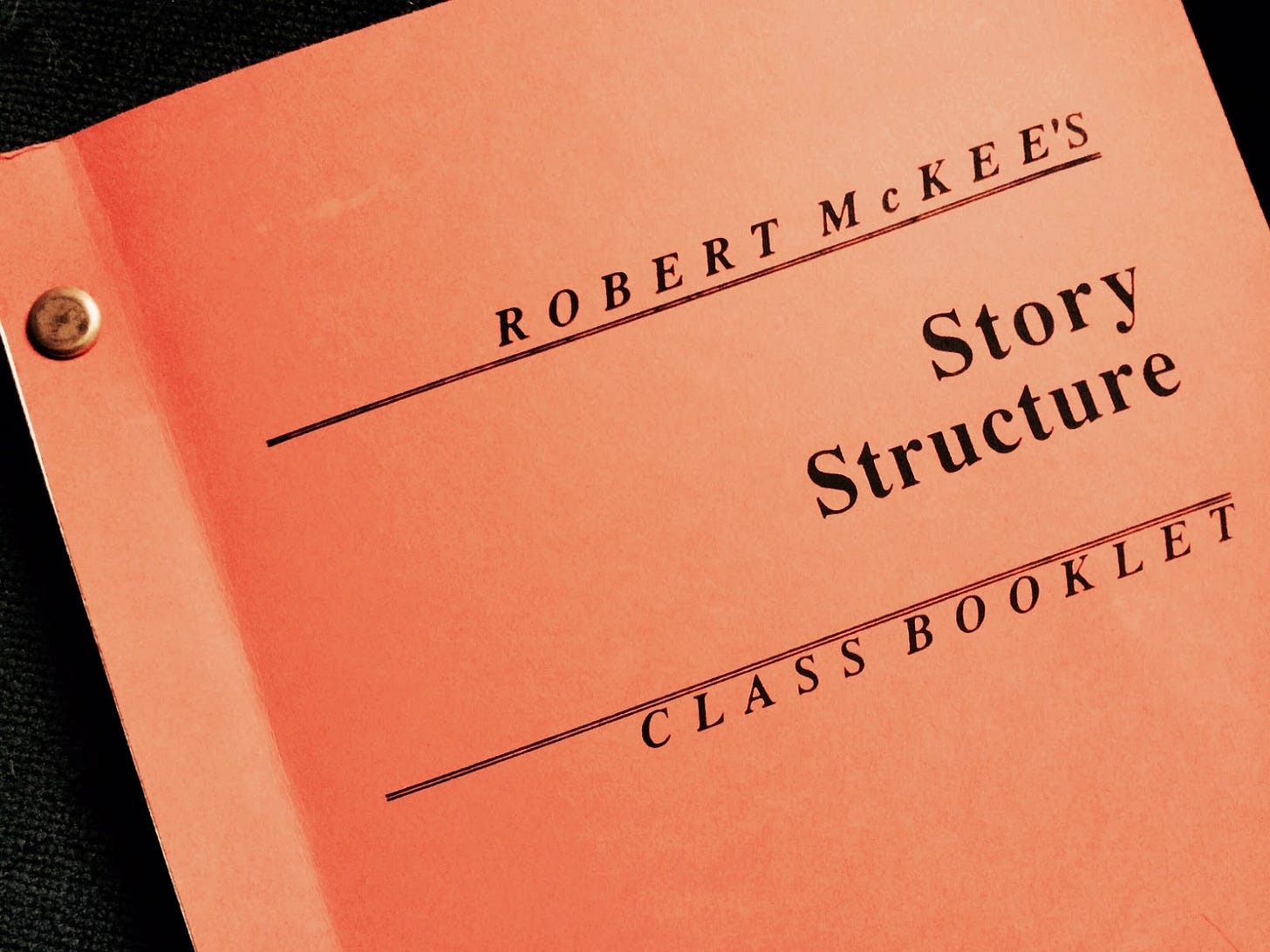Robert McKee's final bow
Robert McKee has had quite an impact on my formative writing years. As he's up there in age, I wanted to see if he's still doing seminars - and saw that he's about to take his final seminar bow.
A recent New Yorker article, entitled Robert McKee Writes His Own Ending, begins thus: “These days, apparently, I have to offer trigger warnings for you snowflakes,” the screenwriting maestro Robert McKee declared the other day, addressing the participants in “Story,” a three-day seminar he was conducting, at a Westin near LAX, for approximately the four-hundredth time. “First of all, language. I use profanity because I like to. It keeps my energy level up.” Other potentially offensive topics: politics, religion, sex. “Writing, ideally, is rooted in reality, and if you can’t see things for what they are you’ll never write anything worth shit,” he said.
Plenty has been written about Robert McKee over the course of his epic career, lecturing around the world for decade after decade. Google the man and you’ll be busy for weeks to come. Leave it to Charlie Kaufman to put McKee into Adaptation, one of his signature super-eccentric-inventive-ingenious films. What you see there, when a distraught screenwriter (Nicolas Cage) attends a McKee seminar, is McKee played to perfection by Brian Cox. It intensely reminded me of the time when I was there - a budding screenwriter with little to no clue about anything.
Years after attending one of his weekend seminars in New York, when anyone asked me whether those lectures were worth it, I would always say, “Pay up. Go. It’s worth every penny.” When I did attend, I was an absolute novice. I had graduated from the Neighborhood Playhouse School of the Theatre in 1992, and had discovered my love for screenwriting that same year. I knew next to nothing but wrote all the time and read the how-to books and wrote some more and when I heard about Robert McKee, I decided to raid my bank account and signed up.
McKee is well known for being intense, acerbic, even abrasive. The moment I was there, in that packed auditorium, it was clear to me that this wouldn’t be cozy. Not only do I vividly remember how I felt during that weekend, thirty years ago, I also still have the “Story Structure” class booklet (more on that below). Never looked at it again, mind you - but I’ve never thrown it away either, unlike most other things you tend to toss over the course of many moves. McKee talked fast, he went through his well-honed routine and he would, back then at least, allow no interruptions. “Talk to me during the break,” he commanded. And those breaks were exactly on time, always, because he absolutely needed his cigarette fixes. Three extremely packed days, just one guy on stage, one guy and his passion for film, for story.
Even at the end of the first day I had more insight than I thought I’d be able to handle. I barely managed to keep up taking notes, let alone make sense of it all. The second seminar day brought my brain easily to its limits (mind you, that ain’t saying much) - I was ready to call it brilliant and go home and sleep for a week. But of course I stuck with it and the third and final day delivered again so that, by the end of the seminar, my head was as close to bursting as it’s ever been. I was physically exhausted from just sitting there, listening, cramming it all in, trying to take in, let alone make sense, of every bit of screenwriting knowledge hurled at me.
It was as if, for three full days, every hour, every minute - he had talked directly to me, just me. You can read everything on screenwriting, on story, on structure - but you can’t get that powerful dose of live McKee unless you pay up and sit through it. I walked out unsure whether I’d ever be able to deliver on even half of what he’d talked about - and at the same time I walked out knowing that this was, without a shred of doubt, my path. Thirty years later, I still love it. According to Wikipedia, since 1984, more than fifty thousand people have taken McKee’s Story seminar - I’m glad for them because they all got a dose of his passion. He’s eighty-one years old now - will he slow down? Well, according to the New Yorker, he’ll use the seminar-free time to write his next book on … screenwriting, of course.
The pictured class booklet makes me smile. The faded red cover, the dulled metal brads, the smell of New York - likely just imagined - still lingering after all these years. Below are McKee’s key questions and there’s no great mystery to them. Even for a budding screenwriter, these questions will resonate as common sense. Still, we’re human beings and we occasionally like to fool ourselves into shortcuts.
So, if you’re a screenwriter, read these questions. If you find that you have the most powerful answers to all of them, your script most likely rocks!
What event starts my story so that the crisis and climax must occur?
What is the relationship between the inciting incident and the crisis/climax of this story?
Does the inciting incident and the way in which it occurs make the crisis/climax eventually necessary?
The inciting incident occurs and creates branching probability. Given this, do you feel the ending you’ve designed absolutely must occur?
What event starts the story so that the protagonist must go into action? Even if the action is saying “I'm not going into action,” the protagonist must react to that inciting incident. Even if it is to deny action.
What does my protagonist want that comes out of this inciting incident? What drives the protagonist? What goal must the protagonist accomplish? What has he/she failed to accomplish?
What position does the character meet? What are the sources of antagonism? From what levels of reality? Always try to create three dimensional stories in which conflict is coming from ALL THREE LEVELS OF REALITY.
Is the opposition equal to if not greater than the protagonist? The protagonist cannot be up against forces which he can easily handle and overwhelm. Do these forces really test him/her as a human being? Do these forces become so powerful and cumulative in their power that they are severely testing the deepest human qualities in this person?
As we move toward the ending, do we become more deeply involved?
Have we grown to identify with and/or like the protagonist?
As we near the ending, do we feel an exhilaration/acceleration of action and reaction?
Does the action in the crisis/climax fully express my root idea WITHOUT the aid of dialogue?
Every movie is about one idea. How does each scene in the film bring out an aspect of that one idea, positively or negatively.
What is the worst possible thing that could happen to my character? How could that turn out to be the best possible thing? Or vice versa.
Well? Got all the right answers? Good for you! Chances are, however, that you haven’t answered all of them to the fullest potential. And so, back to the script!












Thank you for your good wishes, and enjoying your writing too.
One small element to add is that he finally gave up smoking about 8 years ago, having smoked all his life! I managed his UK/European sessions for five years....I never tired of his teaching. He will be missed and hard to replace. We now represent John Yorke who I believe is a worthy successor!